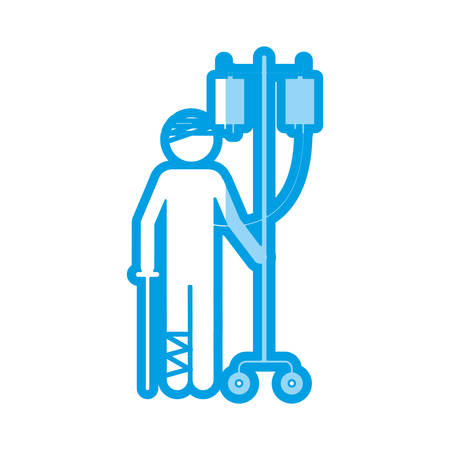Introduction: Exploring Regional Differences in Neurological Rehabilitation
When it comes to healthcare in the UK, the principle of equal access for all is something we hold dear. However, for individuals living with neurological conditions such as stroke, multiple sclerosis, or traumatic brain injuries, the reality can be quite different depending on where they live. Regional disparities in access to neurological rehabilitation services are a growing concern, and they affect not only patients but also their families and the clinicians who care for them.
Across England, Scotland, Wales, and Northern Ireland, there are significant variations in the availability and quality of neuro-rehabilitation facilities. Factors such as funding allocation, workforce shortages, geographical challenges, and differing local priorities all contribute to these inconsistencies. For patients and their loved ones, this can mean delays in starting crucial therapies, limited choice in specialist services, or even having to travel long distances for appropriate care.
For clinicians working within these systems, regional disparities can create frustration as they strive to provide the best possible outcomes with the resources available. Ultimately, where you live can influence your recovery journey after a neurological event—impacting not just physical rehabilitation, but emotional well-being and long-term independence. Understanding these regional differences is vital if we are to advocate for fairer access and improved standards of care throughout the UK.
2. Current State of Neurological Rehabilitation Services Across the UK
Neurological rehabilitation services in the UK are delivered through a combination of NHS provisions, specialist centres, and community-based programmes. However, these services are not structured uniformly across England, Scotland, Wales, and Northern Ireland. Understanding these structural differences is crucial to appreciating why access to care can vary so dramatically depending on where a patient lives.
Service Structure by Country
| Region | Main Service Providers | Key Features | Challenges/Disparities |
|---|---|---|---|
| England | NHS Trusts, Specialist Rehab Centres | Network of regional neuro-rehab centres; strong focus on early intervention | Significant urban-rural divide; waiting times can be lengthy outside major cities |
| Scotland | NHS Boards, Community Teams | Integrated health and social care approach; emphasis on local delivery | Sparser population leads to limited access in remote areas; fewer specialist beds per capita |
| Wales | NHS Health Boards, Local Authorities | Centralised rehab units with community outreach; collaborative planning across regions | Variation in service availability between South Wales (better) and rural North/Mid Wales (poorer) |
| Northern Ireland | Health & Social Care Trusts | Small number of specialist centres serving all of NI; close coordination between acute and rehab services | Lack of local specialist units outside Belfast; patients may need to travel significant distances for care |
Major Differences and Disparities Highlighted
The most striking disparities stem from geographic location, funding allocation, and differing health board priorities. For example, while patients in London or other major English cities might benefit from proximity to world-leading neuro-rehabilitation centres, those living in rural Scotland or Northern Ireland often face much longer journeys and more limited service options. Regional policies also influence the extent of integrated community support available post-discharge. Ultimately, this patchwork system means that “postcode lotteries” still exist for those seeking neurological rehabilitation across the UK.

3. Factors Contributing to Regional Inequalities
Understanding the roots of regional disparities in access to neurological rehabilitation across the UK requires a closer look at several key factors. These influences are often interwoven, collectively shaping the landscape of care available to patients based on their postcode.
Funding Variations
One of the most significant contributors is the variation in funding between different NHS trusts and local authorities. Urban centres, particularly in England, may benefit from greater investment and more comprehensive services, while rural or economically challenged areas can struggle with limited resources. This uneven allocation affects everything from equipment availability to staffing levels, directly impacting patient care and waiting times.
Workforce Shortages
Another critical issue is the shortage of specialist clinicians, including neurologists, physiotherapists, occupational therapists, and speech and language therapists. Recruitment and retention are especially problematic in remote or less affluent regions, leading to longer waitlists and reduced therapy intensity. Patients in these areas may have to travel significant distances or face delays in receiving essential rehabilitation services.
Transport and Accessibility
The ability to physically reach specialist centres also plays a pivotal role. In parts of Scotland, Wales, and Northern Ireland—as well as isolated communities in England—public transport links can be sparse or unreliable. For many families without private vehicles, this creates substantial barriers to consistent attendance at rehab appointments, further widening the gap in health outcomes between regions.
Local Policies and Priorities
Finally, differences in local healthcare commissioning policies can influence what services are prioritised and funded. Some regions might place a greater emphasis on neurological rehabilitation due to higher rates of certain conditions or successful advocacy efforts, while others may focus resources elsewhere. This patchwork approach results in varying standards of care depending on where a patient happens to live.
Towards Greater Equity
Addressing these disparities will require coordinated efforts at both national and local levels, including targeted investment, innovative workforce solutions, improved transport options, and more consistent policy direction. By tackling these contributing factors head-on, we can work towards a fairer system where every patient has equal opportunity for recovery—regardless of their postcode.
4. Voices from the Community: Patient and Clinician Perspectives
The impact of regional disparities in access to neurological rehabilitation is felt most keenly by those living in underserved areas. Real-life stories from patients and healthcare professionals across the UK highlight the tangible consequences of these inequalities.
Patient Experiences: Facing Barriers Close to Home
For many individuals recovering from strokes, traumatic brain injuries, or living with chronic neurological conditions, where they reside determines not only the speed of their recovery but also their long-term quality of life. Consider Emily, a 52-year-old stroke survivor from rural Cumbria. After her discharge from hospital, she found that the nearest specialist rehab centre was over an hour’s drive away. Weekly sessions were simply not feasible due to transport challenges and limited community resources. “I felt like I was left to manage on my own,” Emily shares. “The support just isn’t there like it is in bigger cities.”
Clinician Insights: The Strain on Healthcare Professionals
Healthcare professionals working in regions with limited services often report high caseloads and the frustration of not being able to offer comprehensive care. Dr. Ayesha Patel, a consultant neurologist in the North East, notes, “We want every patient to have equal access to therapies that can make a real difference. Unfortunately, postcode lottery remains a harsh reality.” This sentiment is echoed by physiotherapists and occupational therapists who routinely travel long distances between patients or must prioritise acute cases due to resource constraints.
Comparing Patient Experiences Across Regions
| Region | Access to Rehab Services | Average Waiting Time | Patient Feedback |
|---|---|---|---|
| Greater London | Comprehensive; multiple centres | 2-4 weeks | “Supportive and timely” |
| South West England (Cornwall) | Limited; few specialised centres | 8-12 weeks or more | “Isolated; hard to get help” |
| Northern Ireland (Rural) | Sparse; reliance on community teams | 6-10 weeks | “Difficult to access therapies” |
| West Midlands (Urban) | Adequate; moderate availability | 4-6 weeks | “Good but sometimes delayed” |
The Human Cost of Inequality
The voices from both patients and clinicians paint a clear picture: inequities are not just statistical—they affect real lives and futures. Individuals in regions with robust services often regain independence faster and report higher satisfaction, while those in underserved areas face extended recovery times, increased anxiety, and greater risk of complications. As we listen to these stories, it becomes evident that tackling regional disparities must remain at the forefront of health policy discussions.
5. National Initiatives and Local Solutions: Addressing the Gaps
Recognising the pressing need to bridge regional inequalities in neurological rehabilitation, both national bodies and local communities across the UK have taken action. At the forefront is NHS England, which has launched several initiatives aimed at standardising care and reducing postcode lottery effects. For example, the National Neuro Advisory Group (NNAG) brings together professionals, patients, and carers to advise on best practices and ensure that rehabilitation pathways are consistently available, regardless of location.
Furthermore, NHS England has piloted integrated care systems (ICSs), fostering collaboration between hospitals, community services, and social care to streamline access for neurological patients. These systems aim to break down barriers caused by fragmented services and geographic boundaries, so whether a patient lives in rural Cumbria or central London, they can expect coordinated support tailored to their needs.
However, national strategies alone cannot address every local challenge. This is where grassroots programmes step in. Across cities and towns, voluntary organisations and patient-led groups have developed innovative solutions to fill gaps in service provision. For instance, local stroke clubs provide peer support and exercise classes when formal rehab services are overstretched. Community-based therapy projects in areas such as Cornwall or Yorkshire offer home visits or digital sessions for those unable to travel long distances.
Collaboration between these grassroots efforts and statutory health services is key. In some regions, partnerships have resulted in joint funding or shared training for staff—ensuring best practice reaches even the most remote communities. Importantly, people with neurological conditions and their families are increasingly involved in shaping services through advisory boards and feedback forums, making sure that changes reflect real-life needs.
While progress is being made, challenges remain. The allocation of resources, recruitment of specialist staff, and ongoing evaluation of pilot projects all require sustained commitment from policymakers and local leaders. Yet, by combining national frameworks with flexible community-driven solutions, the UK continues to move closer toward fairer access for everyone living with neurological conditions—wherever they call home.
6. Looking Ahead: Towards Fairer Access Across the UK
The journey towards equitable neurological rehabilitation in the UK is ongoing, but there is reason for optimism. Addressing regional disparities requires a multifaceted approach, involving coordinated efforts from healthcare professionals, policymakers, patients, and communities themselves.
Investing in Services and Workforce
First and foremost, targeted investment is essential. This means not only funding more specialist neurological rehab centres in underserved regions, but also ensuring existing services are adequately staffed and equipped. Expanding training opportunities for therapists and nurses with neurological expertise can help close the skills gap between regions, making high-quality care more widely available.
Harnessing Innovation and Technology
Technology has enormous potential to bridge some of these gaps. Tele-rehabilitation platforms, virtual clinics, and remote monitoring tools can extend expert support into rural or remote areas. However, these solutions must be designed inclusively – digital literacy support and access to reliable internet are crucial so that no patient is left behind simply because of where they live.
Building Partnerships Across Sectors
Collaboration is key. Integrated care systems that bring together the NHS, local authorities, charities, and patient groups can identify local needs more accurately and deliver tailored solutions. Sharing best practice across regions helps to raise standards everywhere, not just in areas already well-served.
A Call to Action
No one should be disadvantaged by their postcode when it comes to accessing life-changing neurological rehabilitation. We all have a role to play: from championing awareness within our communities to advocating for policy change at national level. By working together and keeping patients’ voices at the heart of service design, we can move towards a future where everyone gets the support they need on their rehabilitation journey—regardless of where they call home.


